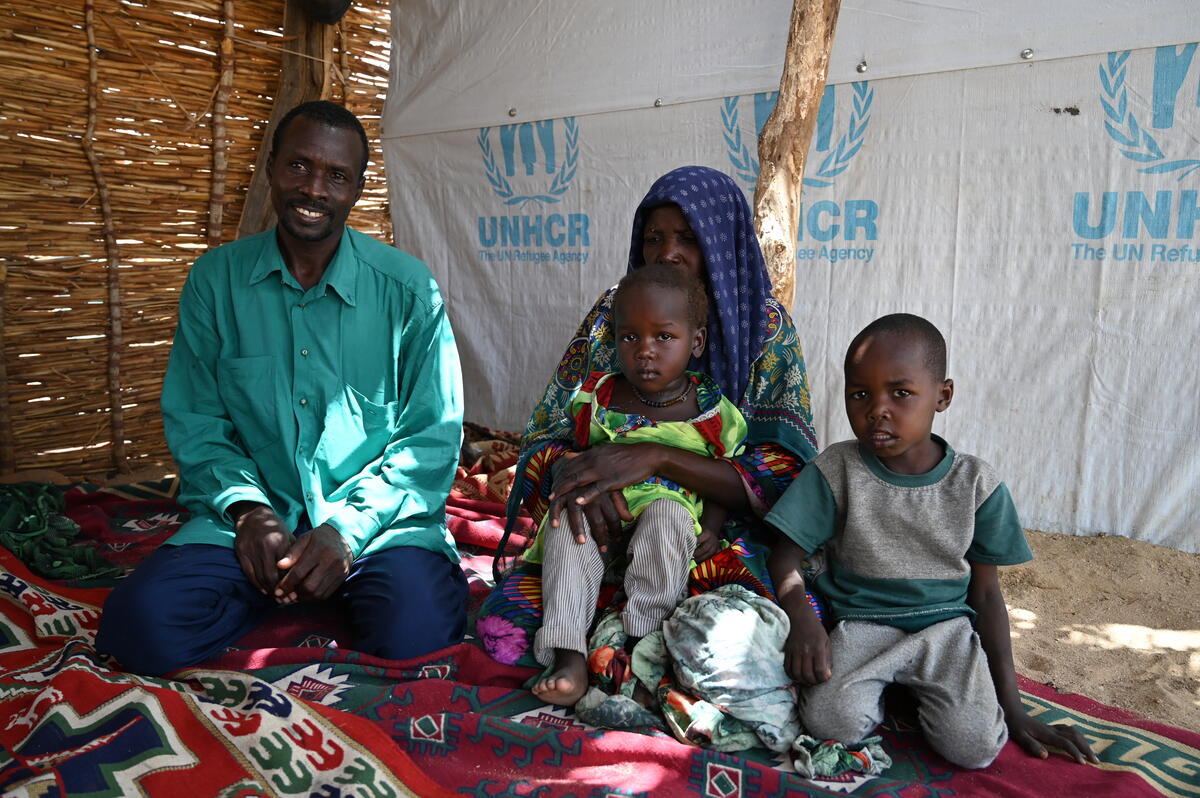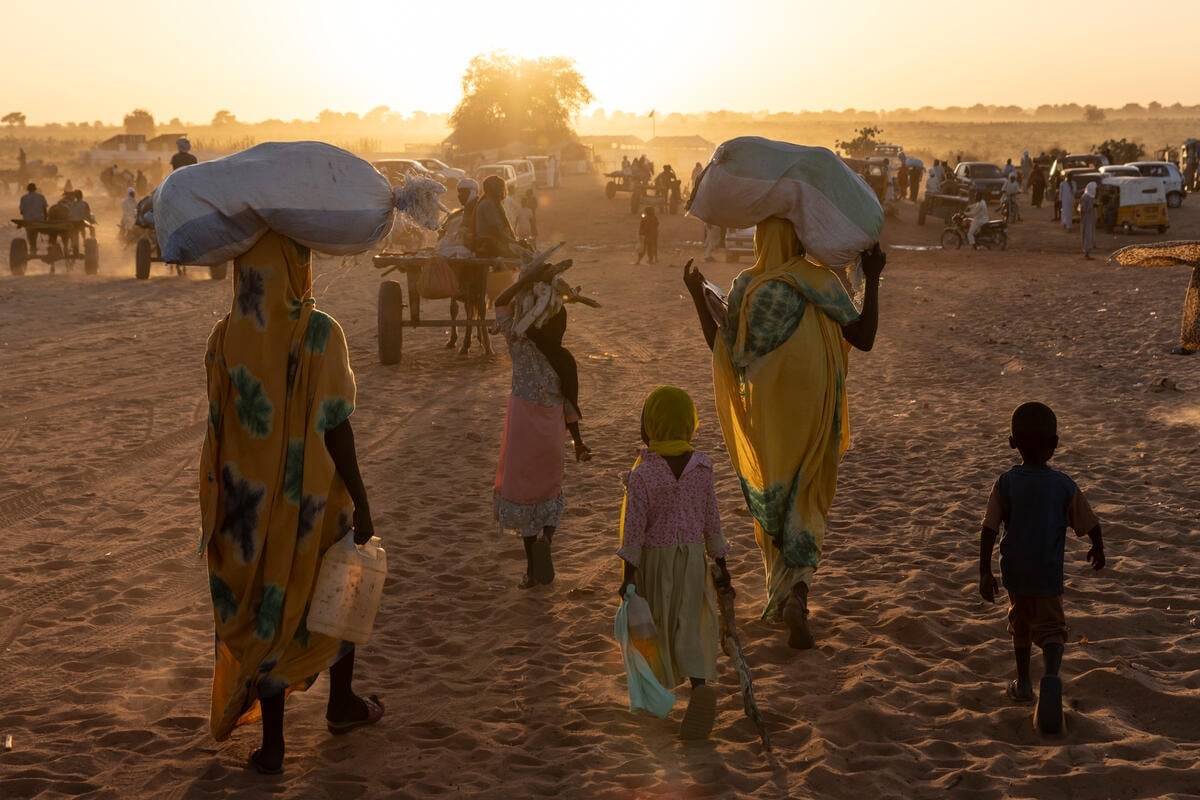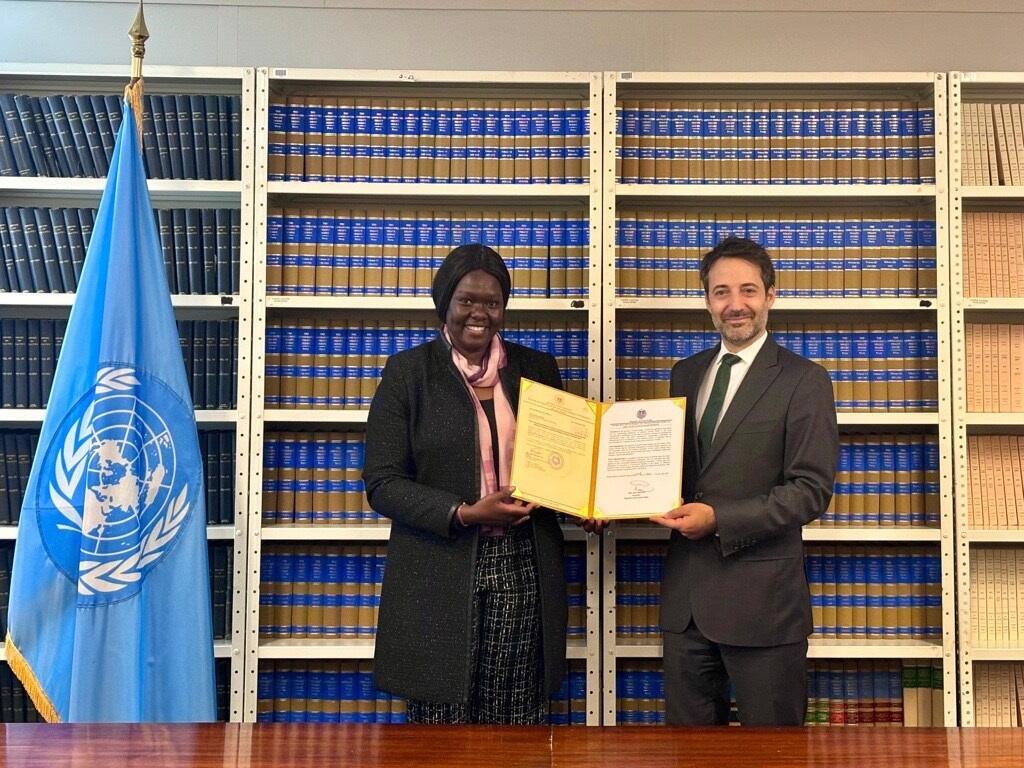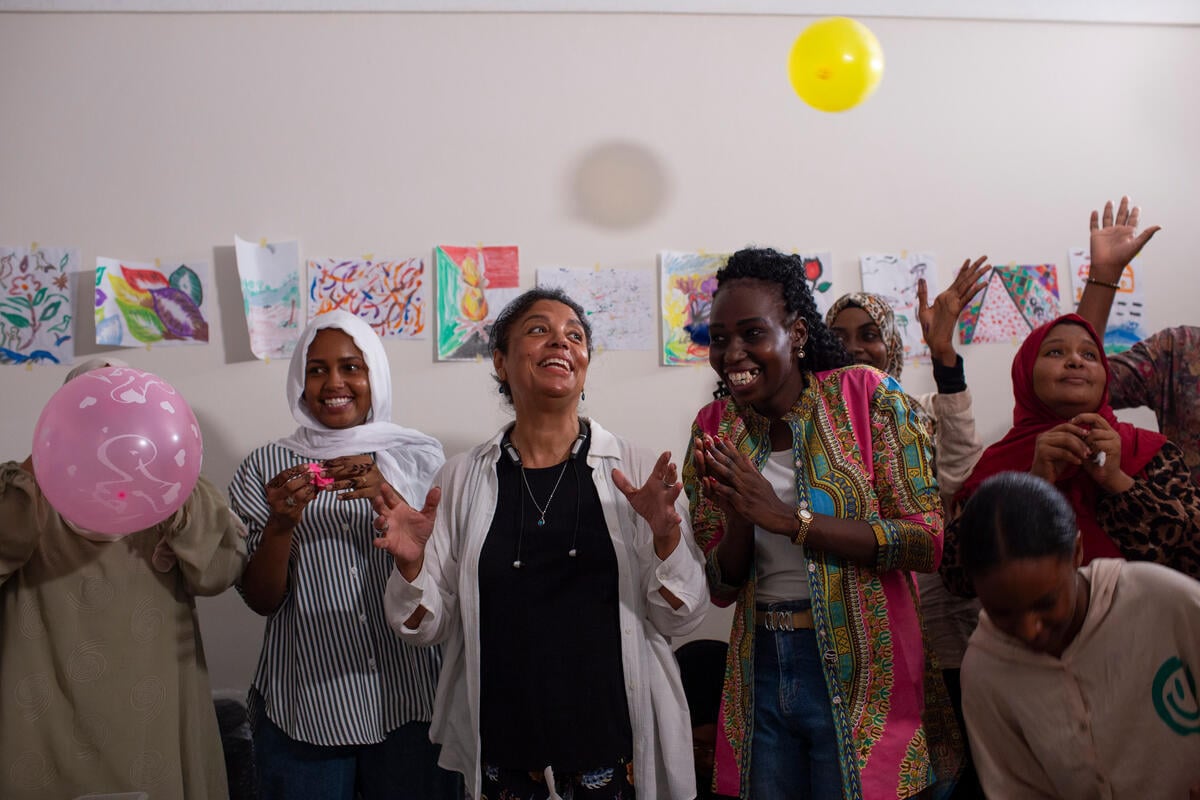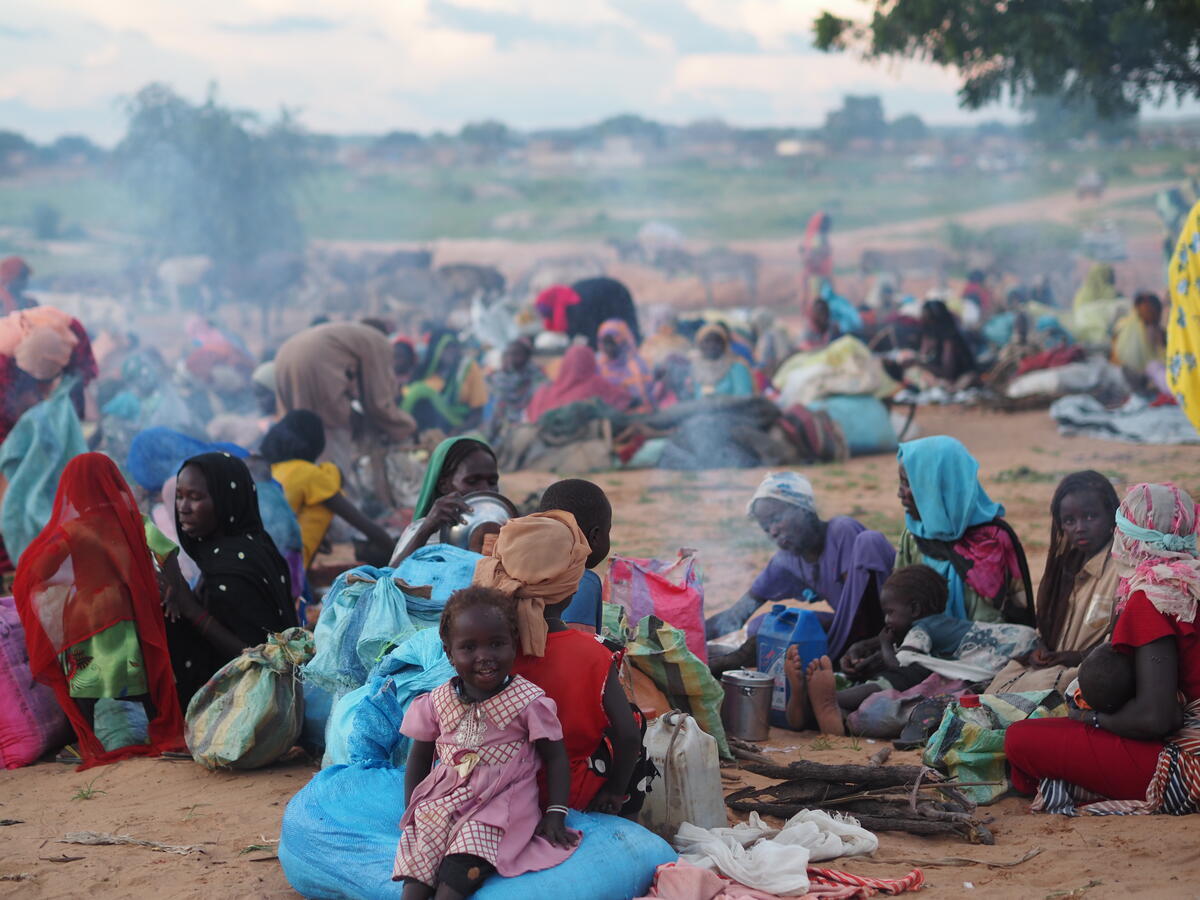Sudanese refugees embrace Global Handwashing Day for disease control
Sudanese refugees embrace Global Handwashing Day for disease control

YUSUF BATIL REFUGEE CAMP, South Sudan, October 15 (UNHCR) - UNHCR staff and health workers in camps across Africa, including Sudanese nurse Dafala Baruk, will today be stressing the vital importance of cleanliness for refugees in harsh environments.
Monday is Global Handwashing Day, launched in 2008 to stress the importance of cleaning before eating or after going to the lavatory as a key approach to disease prevention.
The health message has particular meaning for Baruk, a refugee from Sudan's Blue Nile state, because his brother-in-law lies ill with hepatitis E in South Sudan's Yusuf Batil refugee camp, one of four in Maban County, Upper Nile state. It's also been embraced by other refugees, including children, who will on Monday perform catchy songs with the core message.
"On Global Handwashing Day, the message to wash one's hands will be reinforced in camps around Maban County," said UNHCR Public Health Officer Pillar Moreno. "We hope that in a short period of time, handwashing will become second nature before the preparation of food or after using latrines.
Moreno added that "this small but essential practice will help them survive and remain on the safe side of an outbreak like hepatitis E." With tens of thousands of people crossing the border from Blue Nile state into South Sudan's Upper Nile state, many in poor physical shape, such small precautions can become vitally important in averting the spread of viral diseases such as hepatitis and cholera.
Baruk's brother-in-law, Djamuri Madeer, fell ill with hepatitis two months after arriving in Yusuf Batil camp. Moreno explained that hepatitis was linked to poor and fragile hygiene and sanitary conditions and high population density in a camp can lead to outbreaks.
Transmitted orally or through faecal matter on unwashed hands, the incubation period for hepatitis E is between two weeks and two months. Most people recover with treatment, but it can be fatal for severe cases, while the mortality rate among pregnant women can be as high as 20-25 per cent.
Madeer has no idea when or where he could have contracted the virus, but he admitted not washing his hands regularly. He had also shown the telltale signs of jaundice, body pain, vomiting, fever and a general malaise.
Like other refugees, he went to the camp health clinic but also sought the services of a traditional healer. Moreno said Madeer's faith in traditional healers was common, while adding that this was helpful for health workers because it made traditional medical practitioners an important component of Maban County's health surveillance team and its outreach activities.
The messages promoted by Global Handwashing Day have been incorporated in health strategies and campaigns in the camps across Maban County.In addition to cleaning hands after going to the lavatory and before cooking and eating, messages have included the importance of consuming safe drinking water and of using latrines rather than doing one's business in the open.
Meanwhile, Moreno commended the network of community outreach workers who have helped track cases of suspected hepatitis. "As a result, the number of cases coming to the clinic with suspected hepatitis E has increased significantly, meaning that the response for medical health practitioners and the community by working together is helping to contain and fight the outbreak," she said.
"At present, the outbreak of hepatitis E appears to be under control, but this will not make us complacent," said Moreno. "We will continue reinforcing the message for people to wash their hands long after the day has ended."
By Pumla Rulashe in Yusuf Batil Refugee Camp, South Sudan




